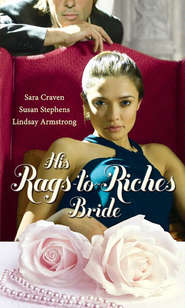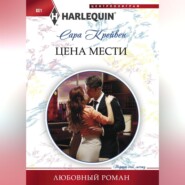По всем вопросам обращайтесь на: info@litportal.ru
(©) 2003-2024.
✖
Wed To The Italian: Bartaldi's Bride / Rome's Revenge / The Forced Marriage
Автор
Год написания книги
2018
Настройки чтения
Размер шрифта
Высота строк
Поля
‘I can’t think that the Marchese can have found to say. After all, we hardly know each other.’ Clare’s tone was repressive, and he looked surprised.
‘Guido? But I was referring to your godmother, the Signora Andreati. She has been my informant.’
‘Oh,’ Clare said in a hollow voice. ‘I see.’
Well done, she berated herself silently. An own goal in the first minute.
She was horribly aware that Guido had heard every word of the little exchange, and was looking frankly amused.
She turned with something like relief to meet Tonio Lerucci, introduced by Paola with a casualness that bordered on rudeness.
He was younger than she’d imagined, and of medium height, with a charming smile that lit his dark monkey face.
‘It is good to meet you, signorina. Let me get you some coffee.’
She thanked him, chatting lightly while she filled a plate from the display of cold meat, sausage and cheese on the massive sideboard, and took a hot roll from a covered basket proffered by a maid.
Guido had taken his seat at the head of the table, so she contrived to manouevre herself into a chair at the other end, finding herself next to the Count.
‘So, signorina, what do you think of the Villa Minerva? Or is it too early to make a judgement?’
‘By no means. I think it’s—beautiful.’ She glanced up at the exquisitely painted ceiling. ‘That must be very old.’
‘Nearly four hundred years,’ he agreed. ‘As you see, it is a representation of Leda and the god Zeus who came to her in the guise of a swan.’ He pointed. ‘And there is the goddess Hera, watching jealously.’
‘As she had to do so often,’ Clare said drily. ‘The painting’s in wonderful condition.’
‘It has undergone certain restoration work, as most of the house’s treasures have done.’ He turned his head towards the Marchese. ‘I am telling Signorina Marriot, Guido, that you are an excellent guardian of your heritage.’ He nodded. ‘Your son will be a fortunate man.’
Clare, wincing inwardly, saw Paola look up with a mutinous scowl, and hastily intervened with a question about the date of the present house, which the Count was happy to answer.
He was clearly an enthusiast, and very knowledgeable, and after a while Clare forgot her self-consciousness in the sheer pleasure of listening to him.
During their conversation, she learned that he had been married to Guido’s aunt, but had been a widower for nearly five years.
‘To our sorrow, we had no children,’ he said. ‘So Guido was always more than a nephew to us, and, since I have been alone, he has made sure I continue to be part of his family.’ He smiled faintly. ‘He has a keen sense of his obligations, although, admittedly, he has waited longer to marry than his father would have wished.’
Clare bit her lip. ‘Perhaps he’s been waiting for his bride to grow up,’ she suggested awkwardly.
‘Or maybe he wished to be sure that she was the one woman to fill his life,’ the Count said gently. ‘He has made no secret of desiring a marriage as happy as that of his parents.’
Then why is he marrying Paola? Clare bit back the question. It was not her place to ask, she told herself raggedly. And, if he was determined enough, he could probably salvage something from such an ill-matched relationship, anyway.
Breakfast over, Clare found herself commandeered by Paola, on the pretext that she wished to show her the gardens.
‘Fine,’ she said. ‘But then we must do some work. After all, I’m here primarily to give you language lessons.’
Paola pulled a face. ‘School. Always it is more school with Guido.’
‘Well, it’s important that you should be able to talk to foreign clients with him,’ Clare said reasonably.
Paola giggled. ‘But that is not going to happen, silly one. And Fabio speaks only Italian, so you can just pretend to give me lessons.’
I think, Clare mused wearily, as she followed the younger girl into the sunlit grounds, that I already have as much pretence in my life as I can handle.
In spite of her misgivings, Clare found her first day at the Villa Minerva passing more tranquilly than she could have hoped.
She toured the gardens with Paola, turning a partially deaf ear to the torrent of half-formed and generally unworkable plans for her future that the younger girl assailed her with.
The villa’s grounds were extensive and immaculately kept, and Clare, who loved plants, and had always worked alongside her father in their own garden, would have liked to have absorbed it all in peace.
But, as this was clearly impossible, every so often she tried to introduce a note of sceptical and practical reality by asking what Fabio did for a living, where they would live after they were married, and how their bills would be paid. But Paola was inclined to dismiss all that as irrelevant.
‘All that matters,’ she declared passionately, ‘is our love for each other. And, besides, I shall have money when I’m older. I shall just have to make Guido give some of it to me now.’
Clare raised her brows. ‘After you’ve made a fool of him by running off with Fabio?’ She shook her head. ‘I wouldn’t count on it.’
‘Ah,’ Paola said triumphantly. ‘But he will not wish it to be known that I have fooled him. Therefore, for the sake of his pride, he will do what I want, so that people will think he does not care.’
In which there was a certain twisted logic, Clare was forced to admit.
She said, ‘Well, I hope everything works out for the best. Now, can you tell me the names of these flowers in English?’
But this Paola could not do, cheerfully admitting she didn’t know what they were called in Italian either.
‘Instead, we will go down to the pool and swim a little,’ she announced.
‘Paola, I’m here to work, not vacation.’
Paola pouted. ‘But this is only the first day. And Guido will not know. He and Tonio will be shut up in his study all morning, talking about farms and vineyards and the olive crop. All we need to do is avoid Zio Cesare, who is boring.’
‘He’s nothing of the sort,’ Clare said roundly. ‘I was fascinated by what he was telling me about the villa.’
Paola gave her a stare of sheer incredulity. ‘Chiara—you like to hear about Etruscans—and architecture—and the school of Raphael?’ She flung her hands in the air. ‘Then there is no hope for you.’
‘No,’ Clare agreed quietly. ‘I don’t suppose there is.’
In the event, they had the pool entirely to themselves. Clare was about to go back to the house to get her swimsuit, but Paola directed her to the stone-built cabins, on a cypress-sheltered terrace overlooking the water, which served as showers and changing rooms, and told her that there was always a supply of spare swimsuits and towels for guests.
Most of those on offer seemed to be bikinis considerably briefer than her own, so Clare opted for a one-piece in a deep bronze colour.
It wasn’t really suitable either, she thought grimly, being cut far too high in the leg and low in the neck, and fitting her like a second skin to boot.
Paola, she discovered, had simply discarded the cotton shift she’d been wearing to reveal a costume that consisted of a black thong and two minute circles of material that barely covered her nipples.
Really, Clare thought wearily, it hardly seemed worth the effort.
But the pool itself was wonderful, a great oval of gleaming turquoise water surrounded by tiled sunbathing terraces.













